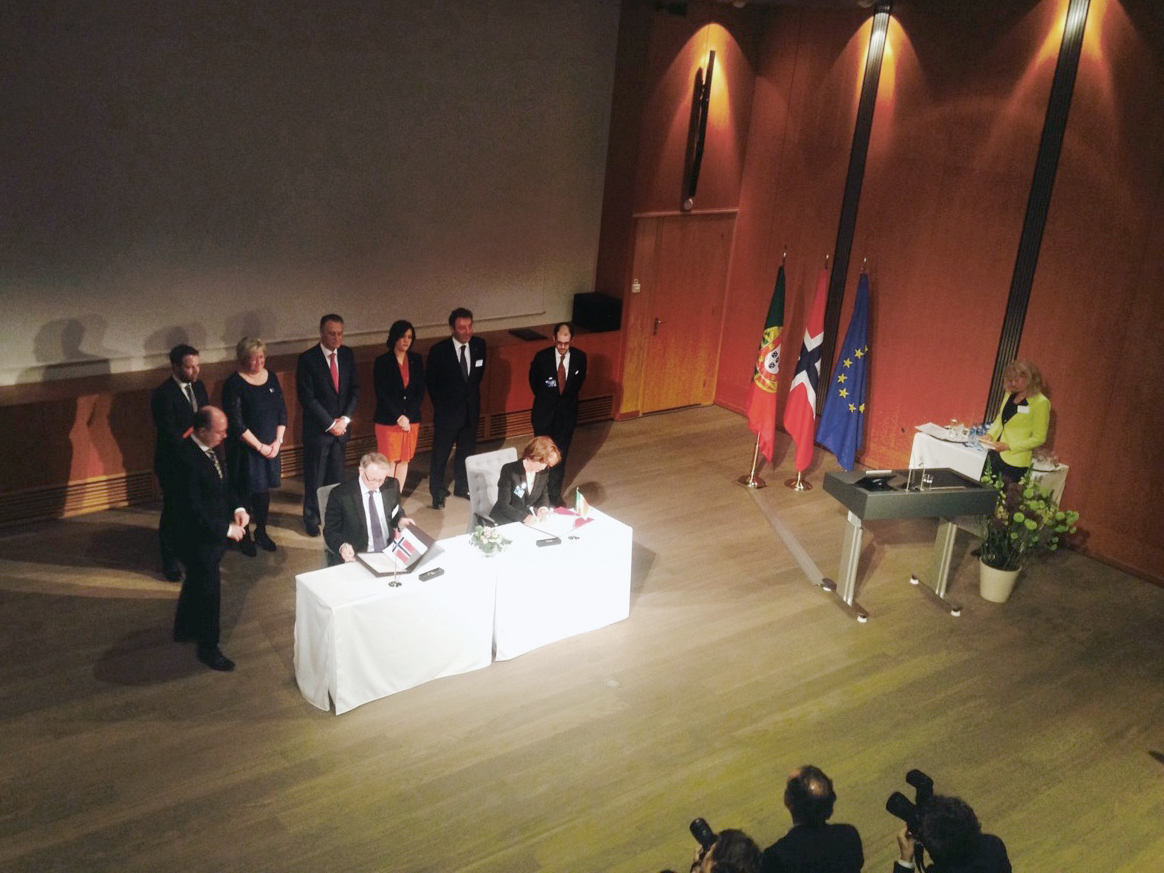Portugal and Norway align research strategies in marine science and technology

Portugal and Norway share strategic, scientific, and economic interests in the sea: both countries enjoy natural marine resources, both have jurisdiction over vast maritime areas (in the case of Portugal, the country has one of the largest exclusive economic zones in Europe, covering more than 1,700,000km², equivalent to 18 times its continental shelf). Both are maritime nations, with a concentration of population in coastal regions, and strong contributions from these regions and/or maritime-related activities to their respective GDPs. In addition, Portugal and Norway have marine ecosystems, geolocation, scientific areas, and maritime economies that are comparable in many respects. With the aim of taking advantage of these complementarities and promoting mutual benefits, the FCT and its Norwegian counterpart, the Research Council of Norway (RCN), signed a Memorandum of Understanding for Scientific and Technological Cooperation in Marine Sciences and Technologies in May.
The Memorandum of Understanding establishes cooperation with Norway in the field of marine science and technology as a priority, starting next year. The Memorandum outlines some of the measures planned for the implementation of this cooperation: joint funding of R&D projects, the organization of seminars, symposiums, workshops, and other scientific meetings between research centers and companies in both countries (with a view to producing a cooperation roadmap), the exchange of researchers and technical staff, and incentives for companies to get involved in knowledge transfer and innovation. The Memorandum also provides for the exchange of information and best practices between the public agencies involved in the cooperation, so that they can better understand each other's systems and thus ensure effective support for the collaborative process.
Within the broad field of marine science and technology, the Memorandum now signed covers the following areas: marine biotechnology, food (fisheries, aquaculture, and industrial processing), the environment (marine ecosystems, environmental management, pollution, and climate change), underwater technologies and offshore systems, deep sea (including ocean floor mining), offshore energy (including fossil fuels, renewables, and methane hydrates).
In addition to bilateral collaborations between Portugal and Norway, cooperation at the multilateral level will also involve consolidating joint positions and promoting the positions of both countries in the Horizon 2020 framework program and other collaborative platforms, such as Joint Programming Initiatives, ERA-NET, the EUROSTARS program, and joint marine initiatives of the European Institute of Technology, where both Portugal and Norway already have a significant presence.
The Economy of the Sea – a global priority and a priority for Portugal
For some time now, the sea has been the focus of attention in various international forums, due to its considerable resources (transport, communication, food, biotechnology, energy, geological, and genetic) and the ecological services it provides (e.g., climate regulation, storage, and recycling of pollutants). In Portugal, in 1998, the sea was defined as a national priority through the creation of a specific funding program. Under the responsibility of the FCT, between 2000 and 2004, this program brought together various previously scattered funding instruments and enabled the creation of critical mass in the field of marine science and technology, which has been maintained to this day.
In 2006, the National Strategy for the Seawas published. Revised in 2013 (after public consultation), the strategy sets out the national vision for economic, social, and cultural development based on the preservation and sustainable use of ocean resources and services, underpinned by cutting-edge scientific research and innovation.
The Economy of the Sea is thus one of the 15 strategic priorities of the National Research and Innovation Strategy for Smart Specialization, supported by several studies, including the analysis of the national R&I system carried out by FCT, which reveal that Portugal has a competitive advantage in marine R&I (in areas such as fisheries, marine biology, oceanography, and maritime engineering) and has a high level of economic, scientific, and technological specialization in this field.
The FCT Ocean Office
According to Telmo Carvalho, coordinator of the newly created FCT Ocean Office, “Today, after 15 years of concerted investment in marine science and technology, Portugal has a well-established and strong scientific community, particularly in areas such as robotics, biotechnology, geology, and oil and gas exploration. A solid area of research has been created, which is well placed to contribute to the Economy of the Sea."
The mission of the Ocean Office is to support the FCT Directorate in coordinating programs and funding instruments of interest to marine science and technology, in order to ensure the sustained growth of the existing critical mass in this field in Portugal, support the internationalization of this truly multidisciplinary community, and promote interactions between research and the business community. The FCT's Ocean Office will therefore play an important role in implementing the Memorandum of Understanding with the Research Council of Norway.